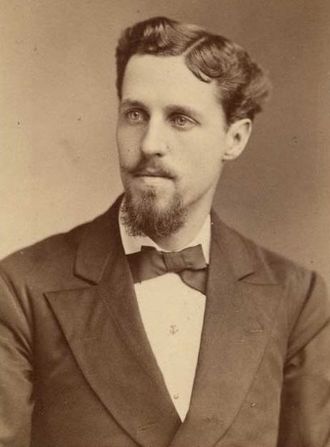Discover Your Roots
SIGN UPDiscover Your Roots
SIGN UPLaird is a male name of Scottish origin, meaning "Lord." It is a strong and distinguished name with historical and cultural significance. The name Laird is derived from the Scottish title for a landowner or Lord, reflecting power and authority. It has been used as a given name for notable individuals, including Laird Hamilton, a renowned big-wave surfer, and Laird Barron, an accomplished American author and poet. The name Laird carries a sense of leadership and strength, making it a popular choice for parents seeking a name with a noble and traditional connotation. With its Scottish heritage and powerful meaning, Laird is a name that exudes confidence and respect.

Laird Samuel Barron, born on March 5, 1970, is an American author and poet known for his work in horror, noir, and dark fantasy genres. His early life in Alaska, marked by poverty and isolation, has greatly influenced his writing. Barron has a diverse career background, having raced in the Iditarod and worked as a fisherman in the Bering Sea before becoming a prominent figure in the poetry scene and later transitioning to professional writing. His debut collection, "The Imago Sequence & Other Stories," published in 2007, garnered widespread acclaim and established him as a notable voice in the genre. Barron's work often incorporates elements of pulp fiction, westerns, and noir, infused with supernatural and horrific themes. He has received numerous awards and nominations, including the Shirley Jackson Award and the Bram Stoker Award. Barron's bibliography includes novels, novellas, and collections, showcasing his prolific output and significant contributions to the literary world. With a residence in Upstate New York, Barron continues to captivate readers with his evocative and haunting storytelling.

Laird A. Thompson, born on 6 September 1947, is a renowned professor emeritus of astronomy at the University of Illinois Urbana-Champaign. He holds a B.A. in both physics and astronomy from the University of California, Los Angeles, and obtained his Ph.D. in astronomy from the University of Arizona. With professional affiliations including the International Astronomical Union, the American Astronomical Society, and the Astronomical Society of the Pacific, Thompson has made significant contributions to the field of astronomy. His work spans from extragalactic astronomy to adaptive optics, and he is recognized for his discoveries in voids alongside Stephen Gregory in 1978. Additionally, Thompson has been instrumental in developing projects aimed at enhancing image quality in ground-based telescopes. His expertise and dedication have led to a prolific career, leaving a lasting impact on the field of astronomy. For more information, you can find Professor Thompson's official homepage on the UIUC website and an article on Space.com.

The Lairds of Burnbrae was a hereditary title in Scotland held by several generations in the Primrose family. The Lands of Burnbrae, situated near Kincardine, were previously held by the Blaw family until it was passed on to the Primrose family when Margaret Blaw married Archibald Primrose, the first proprietor of that name to hold the lands of Burnbrae. Held for over two hundred years, the title became incorporated with the Tulliallan estate. The Lairds of Burnbrae resided in Tulliallan, formerly in Perthshire, Scotland, and are related to the Lord Dalmeny, whose family surname is also Primrose. Archibald Primrose was the first Laird of Burnbrae, followed by Peter, Henry, and subsequent generations, with James Primrose being the last known Laird of Burnbrae. The family's history is detailed in the book Culross and Tulliallan.

Laird Howard Barber (1848-1928) was an American lawyer, jurist, and politician who served as a Democratic member of the U.S. House of Representatives from Pennsylvania from 1899 to 1901. Born near Mifflinburg, Pennsylvania, Barber graduated from Lafayette College and later pursued a career in law, eventually being admitted to the bar in Carbon County, Pennsylvania. He held various positions in education and local government, including serving as a school principal and a director of the Mauch Chunk School Board. Although an unsuccessful candidate for the U.S. House of Representatives in 1896, Barber later successfully secured a seat in the Fifty-sixth Congress. After leaving Congress, he resumed his legal practice and later became the president judge of the fifty-sixth judicial district of Pennsylvania in 1913, a position he held until his passing. Laird Howard Barber was laid to rest in Evergreen Cemetery in East Mauch Chunk, Pennsylvania.

All images displayed on this page are sourced from Wikipedia or Wikimedia Commons.We use these images under their respective Creative Commons or public domain licenses. Wherever applicable, author attributions and license information are provided. If you believe an image is used incorrectly or outside its license terms, please contact us so that we can review and correct the issue.